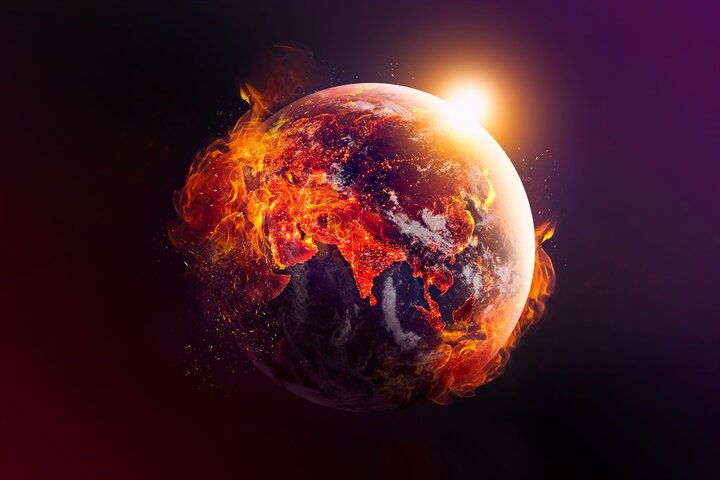Iran (IMNA) - In Iran, where approximately 80 percent of the land area is classified as arid and semi-arid, the country is particularly vulnerable to climate change effects, according to Alireza Raisi, an official with the health ministry. He made these remarks on the occasion of World Environmental Health Day, observed annually on September 26.
Raisi noted that over the past 50 years, Iran has experienced rising temperatures alongside declining annual precipitation. "Climate change affects individuals’ health and well-being by impacting weather, water, and food. It alters rainfall patterns, causing floods, extreme heat, droughts, and storms," he explained.
The official highlighted that heat stress is linked to various illnesses, including heat exhaustion, cardiovascular diseases, and lung cancer. Furthermore, climate change exacerbates food and water insecurity and increases the prevalence of vector-borne infectious diseases. Raisi warned that these changes could threaten Iran's significant health achievements over the past four decades.
He emphasized that climate change and disaster risks pose fundamental threats to sustainable development and the living conditions of people worldwide, as well as efforts to reduce poverty.
World Environmental Health Day aims to raise awareness about environmental health issues and promote actions to improve and protect the environment for the well-being of all living creatures. This year's theme is "Environmental Health: Creating Resilient Communities through Disaster Risk Reduction and Climate Change Mitigation and Adaptation."
Building resilient and sustainable communities requires addressing both climate change and disaster risks while integrating these challenges into development planning and budgeting. To combat climate change effectively, it is crucial to reduce reliance on fossil fuels and CO2 emissions while enhancing initiatives for mitigation and adaptation.
The WHO stresses that comprehensive Disaster Risk Reduction initiatives are essential for future policy actions aimed at fostering resilient communities in the face of climate-related disasters.


Your Comment